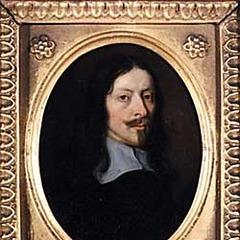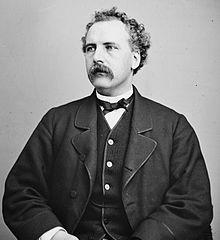
Talk what you will of taste, my friend, you'll find two of a face as soon as of a mind.
Alexander Pope, William Lisle Bowles, William Warburton, Joseph Warton (1806). “The Works of Alexander Pope, Esq: Satires. On receiving from the Right Honourable the Lady Frances Shirley, a standish and two pens. A fragment of an unpublished satire of Pope intitled One thousand seven hundred and forty. The plan of an epic poem, to have been written in blank verse, and intitled Brutus. Preface to Homer's Iliad. Postscript to the Odyssey”, p.255
Copy quote
[T]hro this Air, this Ocean, and this Earth, All Nature quick, and bursting into birth. Above, how high progressive life may go? Around how wide? how deep extend below? Vast Chain of Being! which from God began, Ethereal Essence, Spirit, Substance, Man, Beast, Bird, Fish, Insect! what no Eye can see, No Glass can reach! from Infinite to Thee! From Thee to Nothing.... From Natures Chain whatever Link you strike, Tenth, or ten thousandth, breaks the chain alike.... All are but parts of one stupendous Whole: Whose Body Nature is, and God the Soul.
Alexander Pope, “Essay On Man”
Copy quote
Order is Heaven's first law; and this confessed, some are, and must be, greater than the rest, more rich, more wise; but who infers from hence that such are happier, shocks all common sense. Condition, circumstance, is not the thing; bliss is the same in subject or in king.
Alexander Pope (1836). “Poetical Works, to which is Prefixed the Life of the Author”, p.109
Copy quote
Self-love, the spring of motion, acts the soul;
Reason's comparing balance rules the whole.
Man, but for that no action could attend,
And, but for this, were active to no end:
Fix'd like a plant on his peculiar spot,
To draw nutrition, propagate, and rot;
Or, meteor-like, flame lawless thro' the void,
Destroying others, by himself destroy'd.
Alexander Pope (2012). “Essay on Man and Other Poems”, p.55, Courier Corporation
Copy quote
Whether with Reason, or with Instinct blest, Know, all enjoy that pow'r which suits them best.
Alexander Pope, William Roscoe (1847). “The works of Alexander Pope, esq., with notes and illustrations, by himself and others. To which are added, a new life of the author, an Estimate of his poetical character and writings, and occasional remarks by William Roscoe, esq”, p.92
Copy quote







